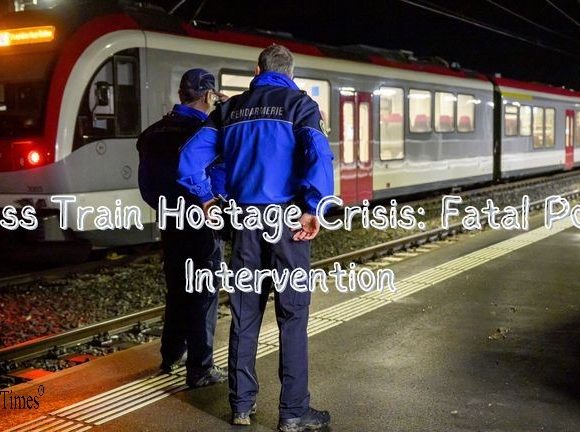
In Switzerland, police intervened in a hostage situation on a train near Yverdon, resulting in the fatal shooting of a man who had taken 15 passengers captive. The perpetrator, reported to be a 32-year-old asylum seeker from Iran, armed himself with an axe and a knife before coercing the train driver to stop and enter the carriage with the passengers.
Despite attempts by authorities to negotiate with the hostage-taker, who spoke both English and Farsi, their efforts proved unsuccessful. As negotiations faltered, police, including a special unit from Geneva, surrounded the train and initiated communication with the perpetrator. However, after several hours, the situation escalated when the hostage-taker moved away from the passengers, prompting law enforcement to take decisive action.
When the hostage-taker attacked the police during the intervention, officers responded by using firearms to protect both the hostages and themselves. Regrettably, the confrontation resulted in the fatal shooting of the perpetrator. The motives behind the hostage-taking remain unclear, although witnesses reported that the perpetrator appeared visibly distressed during the ordeal.
Following the resolution of the hostage situation, authorities are providing support to the hostages and their families through the Swiss health service’s psychological department. The man responsible for the incident was originally from Iran and had been residing in an asylum seeker center in Neuchatel. While hostage incidents are rare in Switzerland, past occurrences have been recorded in various settings, including banks and businesses, underscoring the importance of effective law enforcement responses to such crises.
Picture Courtesy: Google/images are subject to copyright

